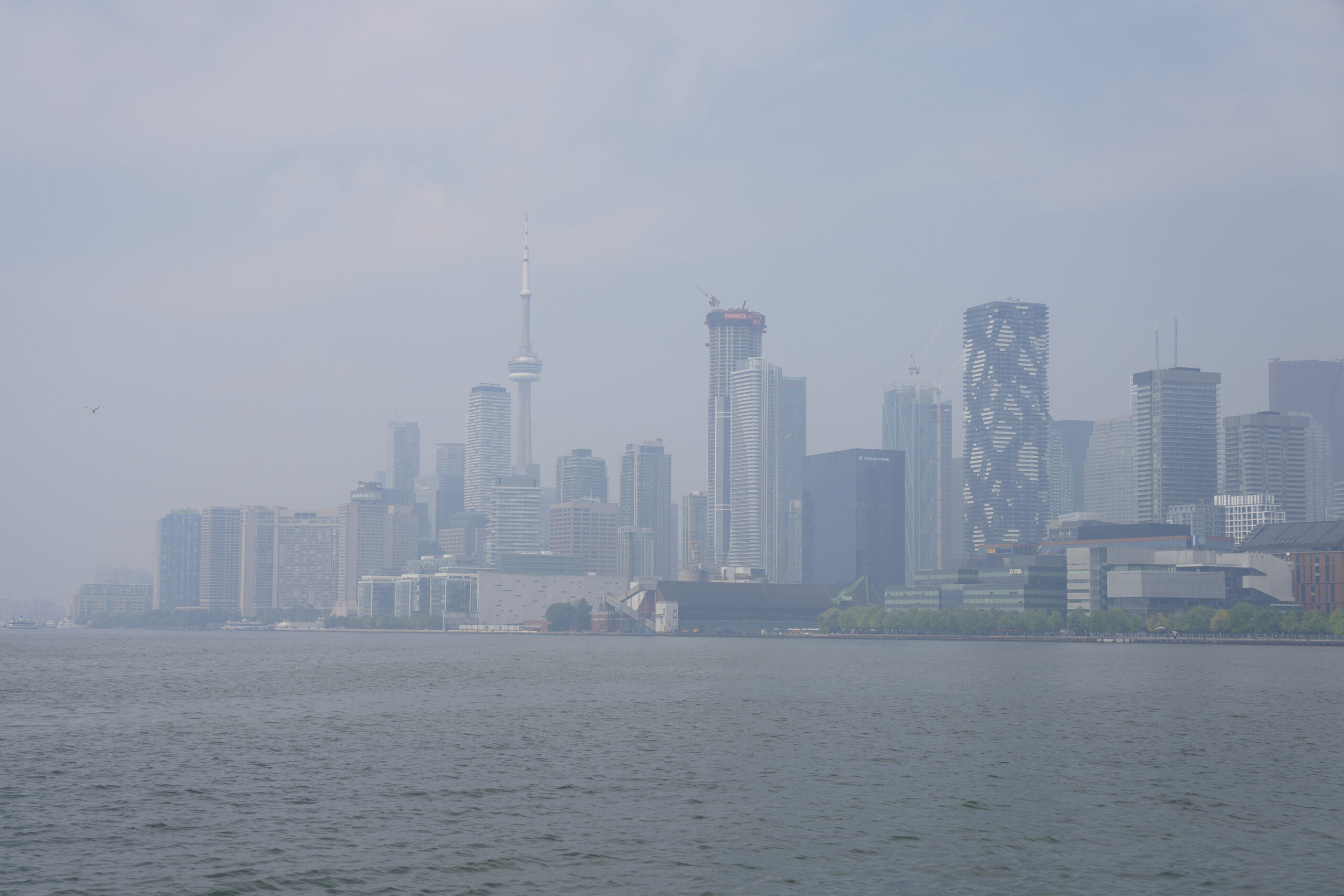
Smoke from Canadian wildfires have continued to drift over the Midwest, blanketing the region with haze and poor air quality, prompting the National Weather Service (NWS) and local departments to issue alerts across several states including Michigan, Wisconsin, Minnesota and Iowa.
Newsweek has reached out to the NWS for comment via email on Saturday morning.
Why It Matters
The increased concentration of airborne fine particulate matter—PM2.5—from wildfires can worsen respiratory and heart conditions, making sensitive groups particularly vulnerable, especially for people with asthma, heart disease or other preexisting respiratory conditions.
Air quality alerts have been in place for a couple days, with individual NWS offices previously reporting unhealthy conditions. Earlier this week, wildfire smoke from Canada was so thick over Chicago that the city recorded the worst air quality in the world, according to AccuWeather.
Canadian wildfires have scorching millions of acres this summer.
What To Know
The NWS has issued a slew of air quality alerts in the northern Midwest region due to the wildfire smoke, warning that “members of sensitive groups may experience health effects.”
In Wisconsin, the Department of Natural Resources issued air quality advisories for the entire state, warning that “PM2.5 AQI [air quality index] is expected to reach the Unhealthy for Sensitive Groups to Unhealthy level.”
It specifically warned people with asthma to “keep quick-relief medicine handy” and those with heart disease that “symptoms such as palpitations, shortness of breath, or unusual fatigue may indicate a serious problem.”
Chris Young/The Canadian Press via AP
In Michigan, the Michigan Department of Environment, Great Lakes, and Energy, said that “high pressure settling overhead will limit dispersion and keep smoke at the surface through today.”
Air quality alerts are in effect across parts of nine states—including Wisconsin, Michigan, Illinois, Minnesota, Indiana, Iowa, Nebraska, Missouri and Kansas—due to the Canadian wildfires. Separately, an alert has been issued in Texas, where atmospheric conditions in the Dallas–Fort Worth area are conducive to “producing high levels of ozone pollution.”
Across states, the NWS warned that when pollution levels are elevated people should “consider limiting strenuous outdoor physical activity to reduce the risk of adverse health effects. People who may be especially sensitive to the effects of elevated levels of pollutants include the very young and those with preexisting respiratory problems such as asthma or heart disease. Those with symptoms should consider consulting their personal physician.”
In addition to limiting outdoor physical activity, NWS urges people and businesses to “avoid activities which lead to ozone formation,” listing out activities like refueling vehicles or using gasoline powered lawn equipment.
What People Are Saying
Matt Taraldsen, a meteorologist at the Minnesota Pollution Control Agency, told The New York Times earlier this week: “This is the first time that we’ve had a weeklong worth of alerts across the entire state. Especially at levels that weren’t just unhealthy for sensitive groups, at levels that are unhealthy for everyone.”
AccuWeather wrote in a Friday X post: “Wildfire smoke from Canada smothered Chicago yesterday, giving the city the worst air quality in the world for several hours and blanketing the skyline in haze.”
Wildfire smoke from Canada smothered Chicago yesterday, giving the city the worst air quality in the world for several hours and blanketing the skyline in haze. pic.twitter.com/66ZGhu7yLw
— AccuWeather (@accuweather) August 1, 2025
United Nations Environment Programme wrote in a July 25 X post: “99% of the global population breathes unclean air, leading to life-threatening health concerns for millions. To address this, stronger air quality regulations are critical.”
Brian Urbaszewski, director of environmental health programs at the Chicago-based Respiratory Health Association, told WBEZ Chicago earlier this week: “The air quality is officially dangerous in Chicago. It’s going to send people to the emergency room. Some people may die because of what they’re breathing.”
What Happens Next?
The smoke is expected to continue to impact the region throughout the weekend, with some alerts until Saturday afternoon and others until Monday.
